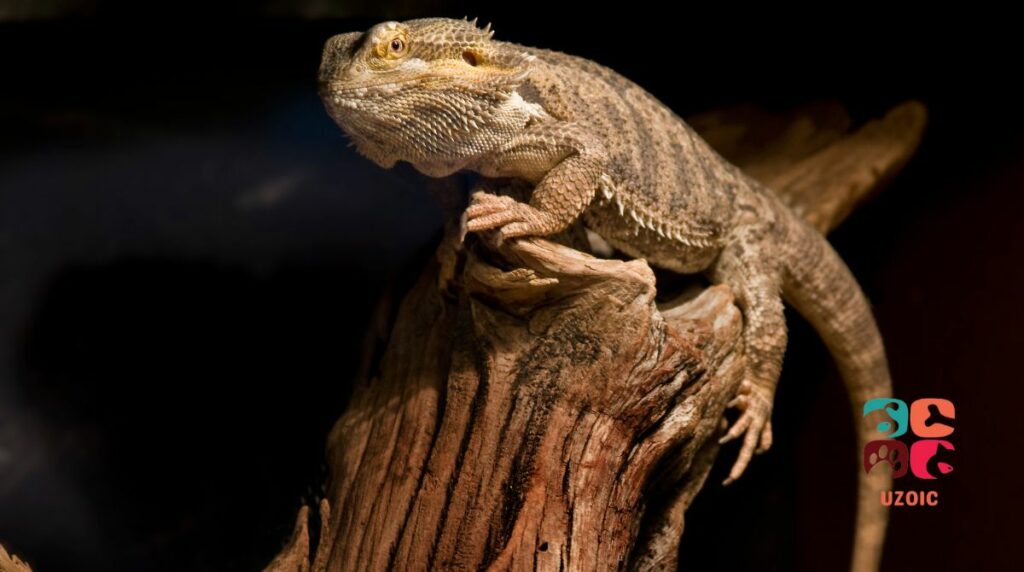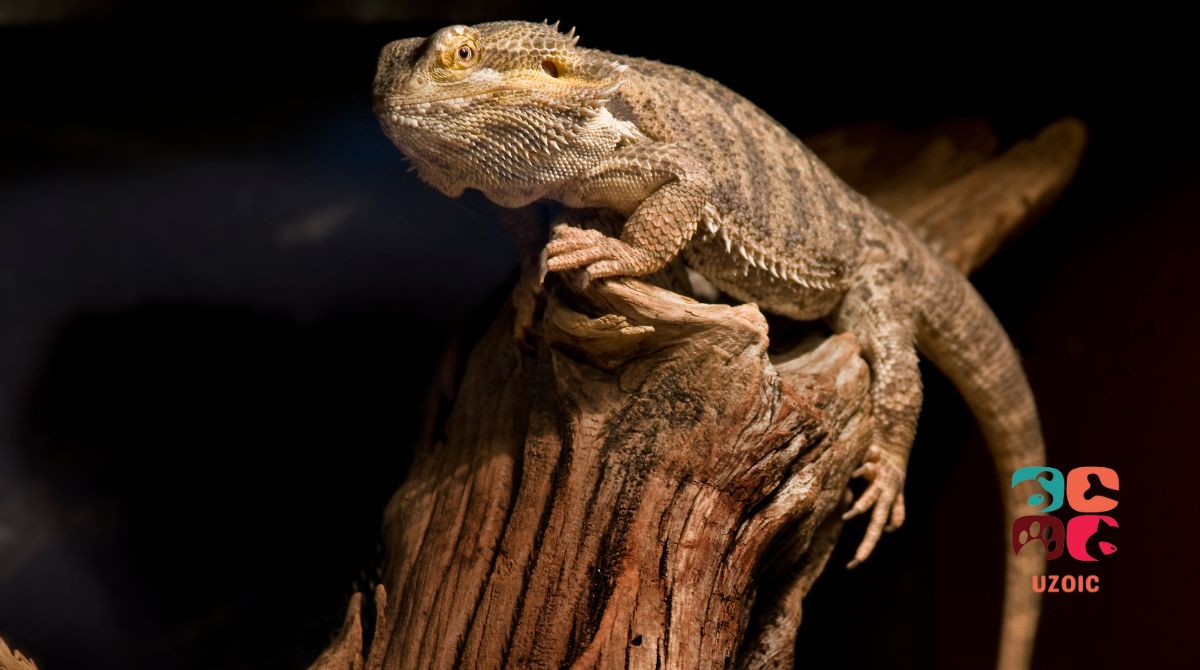Have you ever noticed that your bearded dragon is breathing heavy for no apparent reason? This can be a cause for concern, as it may indicate an underlying health issue. It’s important to figure out why your bearded dragon is having trouble breathing. In this post, we will look at some of the most common reasons why bearded dragons may breathe heavily and what you can do to help them recover. Keep reading to learn more!
A respiratory infection is one of the most common reasons why Bearded Dragons struggle to breathe. Bacteria or viruses cause respiratory infections and can be very dangerous for your Bearded Dragon. If you think your Bearded Dragon has a respiratory infection, it’s important to take them to the vet immediately.
If your Bearded Dragon appears normal and not ill in any way, then the other common root causes of heavy breathing include:
- Temperature of Vivarium
- Eating too fast
Table of Contents
Why Is My Bearded Dragon Breathing Heavy?

If your bearded dragon is breathing heavier than normal, it could signify stress or illness. Some potential causes of heavy breathing in bearded dragons include hot temperature of enclosure, respiratory infection, stress, eating too fast, and heart disease.
If your bearded dragon is showing other symptoms like lethargy, appetite loss, and weight loss, it’s important to take them to the vet for a check-up. In some cases, heavy breathing may also be caused by something as simple as too much heat or humidity in their enclosure.
Bearded dragons are native to arid environments and need warm temperatures to stay healthy. However, if the temperature gets too high, it can cause them to overheat and start panting heavily.
To avoid this, make sure to monitor the temperature of your bearded dragon’s enclosure and provide a cool side for them to escape the heat if necessary.
Why Is My Bearded Dragon Huffing?
If you have ever owned a bearded dragon, you may have noticed that they sometimes make a strange huffing noise. This behavior is an intimidation tactic to scare off another dragon or animals. The huffing sound is similar to that of coughing.
In addition to huffing, bearded dragons can also puff up their beards when they are feeling threatened. This is done in order to make themselves look larger and more intimidating. While huffing and puffing may seem strange, it is a natural behavior for bearded dragons. So if you ever see your pet huffing and puffing, there’s no need to worry.
Is It Normal For A Bearded Dragon To Breath Heavy?
Yes, it is quite normal for a bearded dragon to breathe heavier than other reptiles. While this can be alarming, it’s important to remember that bearded dragons are designed to live in hot, arid environments. In these conditions, it’s normal for them to breathe more heavily to regulate their body temperature. If you notice your bearded dragon breathing heavily, check the temperature of their enclosure. If it is too hot, then check the heat lamps. You may be using a disproportionate amount of heating for the size of your vivarium.
Beardie owners have also reported heavy breathing in their dragon after it has eaten too fast. So look into that aspect as well.
Apart from the above reasons, some medical conditions can cause heavy breathing in bearded dragons. If your bearded dragon shows other signs of illness, such as lethargy or loss of appetite, then take them to a vet.
In most cases, heavy breathing is nothing to worry about. However, it’s always best to err on the side of caution and consult with a professional if you’re concerned about your pet’s health.
How Do You Tell If A Bearded Dragon Has A Respiratory Infection?
A bearded dragon with a respiratory infection may have mucus around its nose and mouth. It may also hold its mouth open and pant. In serious cases, a bearded dragon may stop eating and become lethargic.
Bearded dragons are susceptible to respiratory infections, which can be caused by a number of different factors, including poor husbandry, stress, and exposure to illness. Respiratory infection symptoms include wheezing, clicking sounds when breathing, and increased mucus production. If your bearded dragon is exhibiting any of these symptoms, it is important to take them to the vet for a diagnosis.
To confirm that your bearded dragon has a respiratory infection, the vet will likely perform a physical examination and listen to its lungs with a stethoscope. They may also order x-rays or other tests to rule out other possible causes of the symptoms.
If your bearded dragon is diagnosed with a respiratory infection, it must be treated with antibiotics. With proper treatment, most bearded dragons make a full recovery.
In the meantime, you can try increasing the humidity in your bearded dragon’s enclosure to help ease its breathing.
How Do You Treat A Bearded Dragons Respiratory Infection?
You should take your bearded dragon to the vet if you think it has a respiratory infection so that the proper antibiotics can be prescribed. A bearded dragon’s most common sign of respiratory infection is wheezing or grunting while breathing.
You may also notice your bearded dragon gaping open-mouth breathing, lethargy, and decreased appetite. If your bearded dragon has any of these signs, bring it to the vet as soon as possible.
In the meantime, you can try to increase the humidity in your bearded dragon’s enclosure by misting it with a water bottle several times a day or using a humidifier. You should also ensure your bearded dragon gets enough calcium by dusting its food with calcium powder.
Conclusion
If you notice your bearded dragon breathing heavily, don’t panic! In most cases, it is nothing to worry about. However, if your bearded dragon is also showing other signs of illness, it is important to take them to the vet for a check-up. With proper treatment, your Bearded Dragon will be back to normal in no time! Thanks for reading!
You may like:
- Can Bearded Dragons Throw Up?
- Why Is My Bearded Dragon Walking On Its Wrists?
- How To Make A Bearded Dragon Dig Box?
- Why Your Bearded Dragon Is Blowing Bubbles: Causes and Solutions
- Can Bearded Dragons Eat Clover?


